2.2 ASCE Body of Knowledge#
Course Website
The ASCE Body of Knowledge, 3rd Edition (BOK3), serves as a comprehensive framework for the knowledge, skills, and attitudes required of civil engineers to enter the profession and continue to grow throughout their careers. For students, the BOK3 offers more than just a set of educational and professional benchmarks—it provides a valuable tool for self-examination and reflection. By mapping their progress against the 21 outcomes outlined in the BOK3, students can assess their development across technical competencies, professional skills, and ethical responsibilities. This process encourages a proactive approach to identifying strengths and addressing areas for improvement, fostering a lifelong commitment to learning and professional excellence.
Readings/References#
Videos#
Civil Engineering Body of Knowledge | Wikipedia audio article
Exploring an AI Engineering Body of Knowledge An example of a Body of Knowledge in an related discipline.
Educating the 21st Century Civil Engineer (ASCE) Has a little bit about CEBOK3.
Outcomes#
Outcomes are concise statements that articulate the knowledge, skills, and attitudes individuals are expected to possess and demonstrate by the time they enter the practice of civil engineering at the professional level in the 21st century. These outcomes align with the expectations for professional licensure, which signifies an engineer’s readiness to uphold the responsibilities and ethical standards of the profession.
Outcomes serve as a roadmap for aspiring civil engineers, guiding their formal education and pre-licensure experience. They define the essential competencies required to solve complex engineering problems, engage effectively with multidisciplinary teams, and address the societal, environmental, and economic challenges inherent in civil engineering projects.
These outcomes emphasize not only technical proficiency but also the importance of professional attitudes, such as ethical responsibility, leadership, and commitment to lifelong learning. For instance, they include the ability to design systems that consider sustainability and resilience, communicate effectively with diverse audiences, and apply principles of risk management in decision-making.
Through achieving these outcomes, students and early-career professionals are prepared to meet the evolving demands of the civil engineering field, ensuring that they contribute meaningfully to the public welfare and advance the profession’s role in building and maintaining infrastructure that serves society.
Civil Engineering Body Of Knowledge 3#
Here is the roadmap as described above:
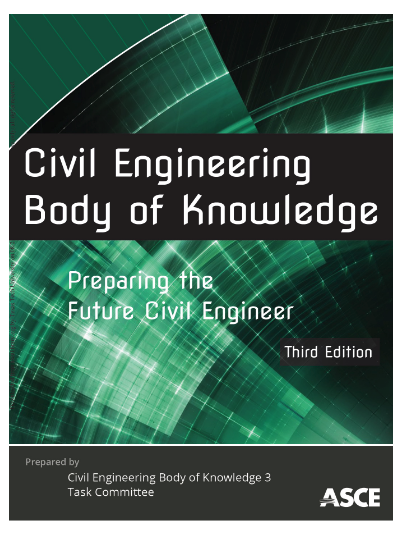
Note
Published Mar 2019
Compliant with 2016-17 and later ABET Program Objectives
21 Learning Outcomes
Cognitive and Affective levels of achievement; Psychomotor levels are barely (not) mentioned - hardly an oversight, but it is important too.
CEBOK3 Outcomes#
Civil Engineering Body of Knowledge for the 21 st Century
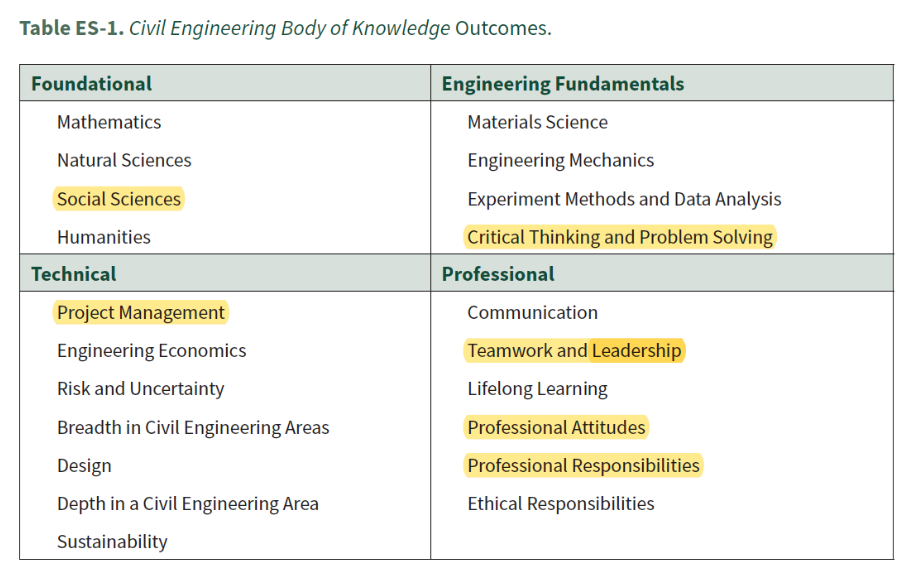
Example 1.2#
CEBOK3 Professional Responsibilities
Domain (cognitive or affective)
Level of achievement (SIX levels, Bloom’s taxonomy)
Demonstrated ability (note the verb)
Typical pathway (expert status, for licensure, for undergraduate study)
Cognitive Domain. The cognitive domain (Bloom, 1956) involves knowledge and the development of intellectual skills. This includes the recall or recognition of specific facts, procedural patterns, and concepts that serve in the development of intellectual abilities and skills.
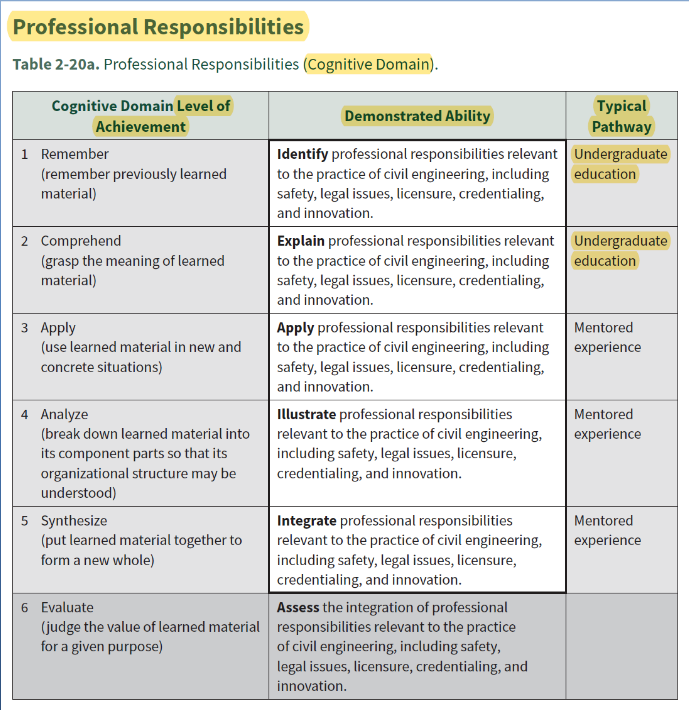
Affective Domain: includes “the manner in which we deal with things emotionally, such as feelings, values, appreciation, enthusiasms, motivations, and attitudes” (Krathwohl, Bloom, Masia, 1973.) Excitement, challenge, frustration, and even trauma are all emotions and experiences that require us to dip into our bank of coping skills and apply them in order to successfully navigate interpersonal situations.
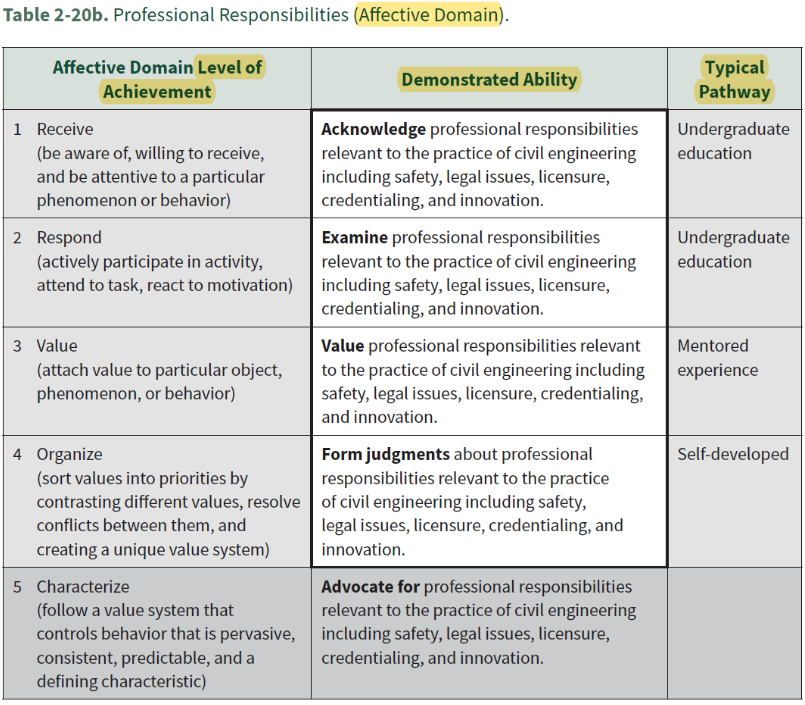
Psychomotor Domain: includes physical movement, coordination, and use of the motor-skill areas. Development of these skills requires practice and is measured in terms of speed, precision, distance, procedures, or techniques in execution.
How does the psychomotor domain fit in civil engineering?
Where this course fits in:#
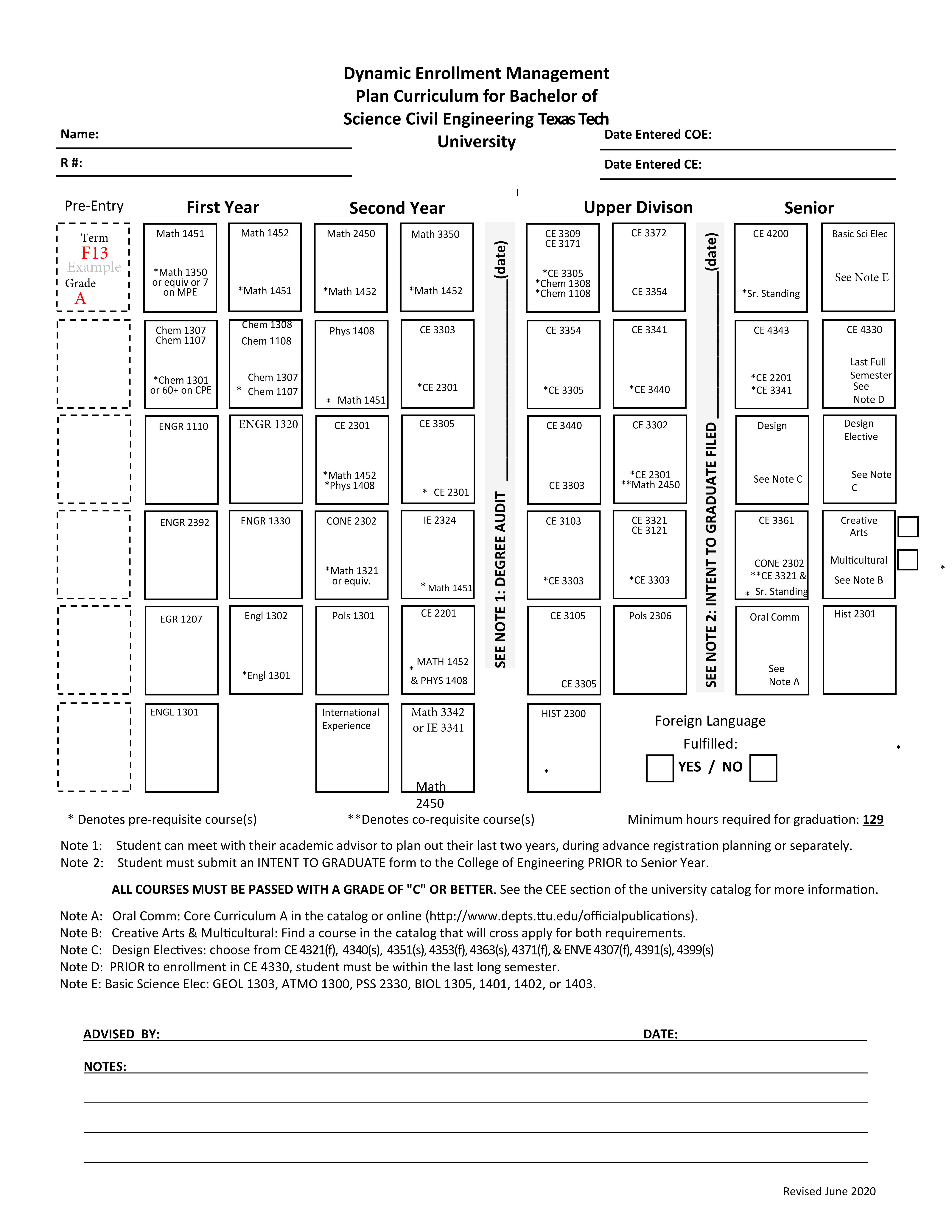
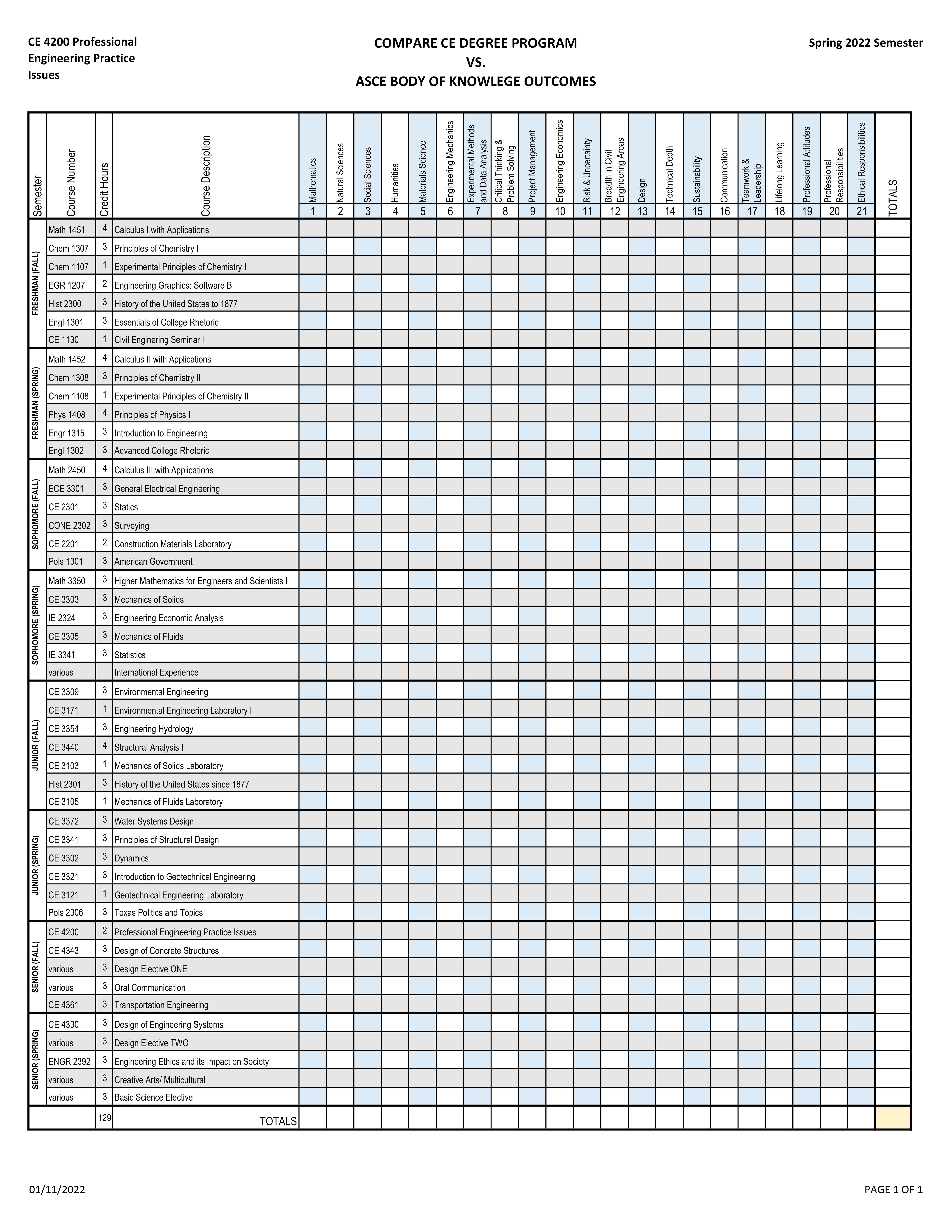
Homework(s)#
Two assignments related to your conceptualization of the various domains of knowledge (cognitive, affective, psychomotor)
The Physical Body as an Extension of the Mind: Analyzing the Role of the Psychomotor Domain in Engineering Knowledge Your conceptualization of the various domains of knowledge (cognitive, affective, psychomotor)
Understanding the ASCE CEBOK3 An exercise to compel you to examine the CEBOK3 in the context of your curriculum
Supporting tools#
Needed for exercise 2 above:
CEDegreePlanvsBOK3E.xlsx An Excel spreadsheet to populate. You will do it twice, so be sure you download, then copy, the rename.
2022-2023BSCEDegree.pdf Dynamic enrollment management plan (2023, a bit out of date, adapt as needed) the written portion of your reply is far more important.
Warning
Need to update DEMP to current version - then supppress this warning Need to update paths to support documents - would be a good idea to store in same directory
